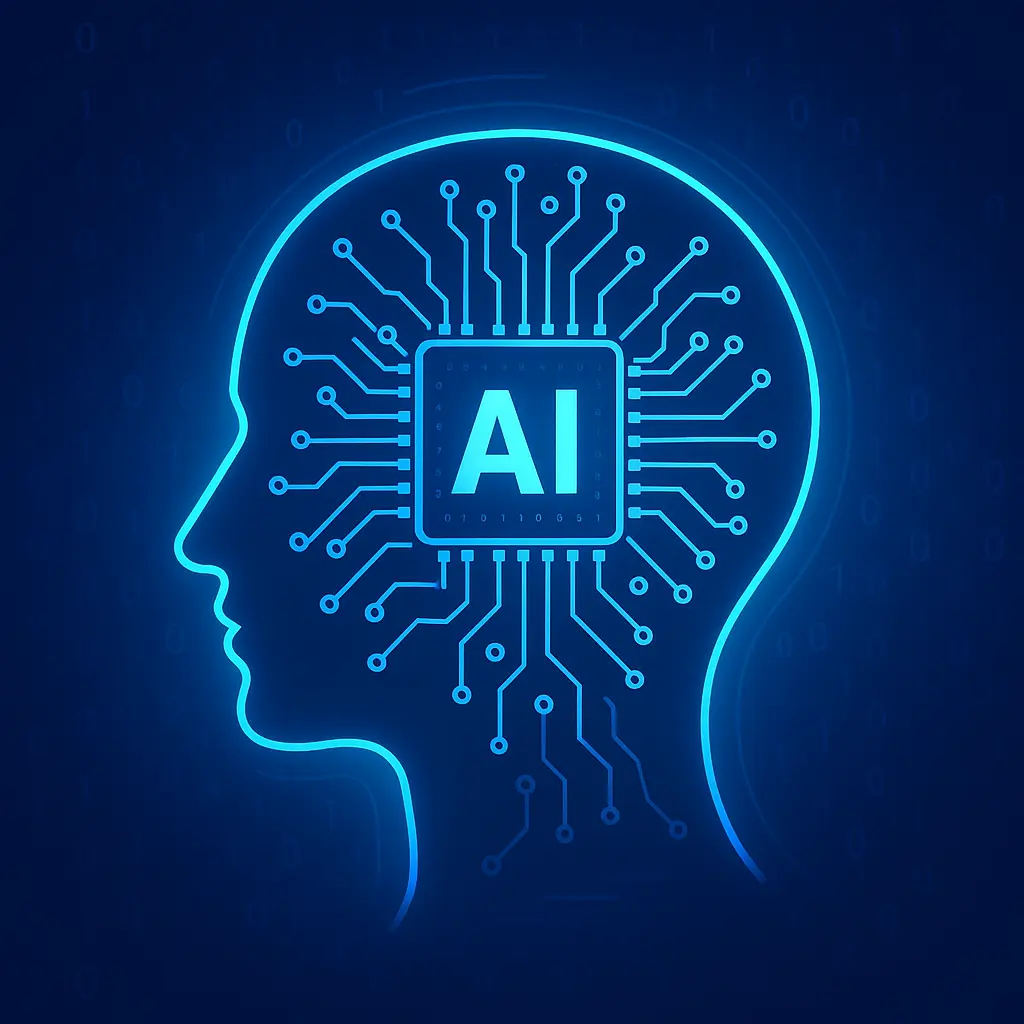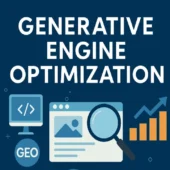By Junaid Imdad, Digital Marketing Specialist & SEO Enthusiast
The digital landscape of 2025 has undergone a remarkable shift, thanks to artificial intelligence transforming the way we create, optimize, and consume content. AI has fundamentally changed how marketers, bloggers, and businesses enhance their online presence. As tools like Content at Scale, Jasper, and various GPT-based models gain popularity, a pressing question emerges: which performs better on Google—AI-generated content or human writing?
These days, it’s not just about how quickly or cheaply content can be produced; it’s about grasping how Google’s ranking algorithms assess, evaluate, and reward different types of content in a world increasingly influenced by machine learning. The ongoing debate between AI content and human writing has become a key focus in SEO strategy, as algorithms prioritize quality, context, and credibility, treating each type of content in its own unique way.
AI Content vs Human Writing: Which One Wins in 2025?
As we move into 2025, the conversation around AI-generated content versus human writing is heating up. On one side, AI content shines with its speed, scalability, and ability to churn out keyword-rich material that’s perfect for search engines. On the flip side, human writing brings authenticity, emotional depth, and a keen understanding of what the audience really wants.
Sure, tools like ChatGPT, Jasper, and Copy.ai can whip up articles, blogs, and product descriptions in no time, but they often miss the unique voice and storytelling magic that only human writers can provide. In today’s SEO world—shaped by Google’s E-E-A-T (Experience, Expertise, Authoritativeness, and Trustworthiness)—the most successful content usually combines the best of both worlds: AI for structure and speed, and human creativity for tone, insight, and engagement.
Content Creation’s Path from Quill to Quantum
The phrase “Content is King” might sound a bit cliché, but there’s a solid truth behind it. Ever since search engines came onto the scene, content has been the driving force behind online engagement. Back in the early 2000s, when content was crafted by hand, it required a lot of research, strategic keyword placement, and the unique insights of writers who truly immersed themselves in their subjects. This method highlighted the difference between AI-generated content and human writing, where the latter focused on depth, relevance, and authenticity—qualities that AI is still working hard to emulate today.
Travel forward to 2025:
AI-generated content has officially entered our daily lives. With the help of tools like ChatGPT, Claude, and Content at Scale AI, we can whip up blog posts, landing pages, social media captions, and product descriptions in no time at all. These artificial intelligence content generators can create this kind of material in mere seconds, often tailoring it to fit specific user needs or keywords—all in one go!
However, the rise of these tools raises an important question: Should we prioritize speed over substance?
Google’s Evolution to AI-Powered Search
To fully comprehend how Google is evolving, we must look at their evolution over time. Through AI Mode, SGE, and Gemini updates, they are moving closer towards an engaging AI search experience aimed at creating conversational search experiences. These updates aim to:
- Represent compiled answers gathered from various content sources.
- Improve your ability to understand natural language queries.
- Focus on topical depth and contextual relevance.
- Content that meets the E-E-A-T framework: Experience, Expertise, Authoritativeness and Trustworthiness should be promoted.
Google’s algorithm is evolving into something closer to human logic and increasing in its ability to emulate human reasoning processes.
Google recognizes that AI may help produce content more rapidly; however, its increased emphasis on E-E-A-T suggests they want to surface material which demonstrates credibility, depth, and real understanding of a topic, qualities which often require human touch.

How AI-Generated Content Affects SEO Ranking in 2025
1. Pros of AI-Generated Content:
Efficiency at Scale:
AI tools have the capacity to quickly generate large volumes of SEO-optimized articles within hours. This makes AI tools ideal for businesses managing high-volume content pipelines.
Consistency:
Artificial Intelligence can ensure consistency of tone and structure across content types and platforms by using templates and automation.
Cost-Effectiveness:
AI can save businesses money by eliminating their need to rely on expensive freelance writers or in-house teams, providing significant cost savings over time.
Multilingual Capabilities:
Artificial Intelligence tools have the ability to translate and localize content faster than human teams, which is vital for supporting global SEO strategies.
2. Cons of AI-Generated Content:
Lack of Depth and Insight:
AI lacks direct experience or unique perspectives that would give its output depth or insight, leaving its output feeling generic or surface level.
Repetitive and Predictable:
Without editing, AI content tends to repeat similar themes and phrases, which may bore readers and reduce engagement.
Risk of Inaccuracy:
AI may “imagine” facts or pull outdated information from its training data, leading to credibility issues and ultimately creating unnecessary controversy.
E-E-A-T Deficiencies:
Google algorithms can detect when content lacks real world experience or authority, demoting it in rankings.

Why Human-Written Content Builds Trust and Authority
Writers bring something to the table that I simply can’t: they forge connections with readers on both emotional and intellectual levels through humor, storytelling, cultural context, and their own life experiences. These human elements infuse words with life, making the content feel relatable, trustworthy, and genuine. This emotional connection is where the real distinction lies when we compare AI-generated content to human writing. Sure, AI can crunch data and spit out technically sound content in a flash, but it misses the mark when it comes to grasping nuance, sarcasm, or the richness of personal experience.
When a person writes an article, it often encapsulates years of expertise, insights gained from real-life challenges, and a personal voice that readers learn to trust. That’s why, in the ongoing discussion about AI content versus human writing, many believe that pieces crafted by humans foster stronger relationships with audiences and keep them engaged for longer. Readers aren’t just looking for answers—they crave stories, empathy, and unique viewpoints. These are the areas where human creativity still outshines algorithms.
Even though AI tools are getting better at mimicking tone or structure, they can’t replicate true passion, original insights, or emotional depth. So, when weighing AI content against human writing in terms of long-term content strategy, brand voice, and audience loyalty, the human touch often proves to be far more impactful and memorable.
- Sow the seeds of trust and loyalty by answering sensitive queries with confidence.
- Demonstrate domain expertise.
- Foster community and conversation.
Benefits in SEO Terms:
Increased User Engagement:
Human-written content often sees longer time-on-page and lower bounce rates, providing behavioral signals which positively influence rankings.
Strengthened Backlink Potential:
Original, well-researched content has a greater likelihood of being linked or shared, providing major SEO advantages. In the debate of AI content vs human writing, the latter often prevails in crafting in-depth, nuanced material that resonates with users. Experienced writers are adept at understanding the subtle user intentions and crafting content accordingly, thus improving relevance and ranking—something AI still struggles to replicate fully.
Ai vs Human SEO Case Studies (2024-2025 Results)
Over the past year, several SEO firms and agencies conducted comparative studies comparing human written content vs AI produced content, providing us with an idea of their findings:
1. SEO Performance:
When we talk about the differences between AI content and human writing, it really stands out in competitive fields like health, finance, and law—areas where expertise, accuracy, and authority are absolutely essential. In these sectors, content created by humans tends to shine brighter than that generated by AI because both readers and search engines appreciate in-depth insights, professional experience, and a nuanced understanding. Google’s E-E-A-T (Experience, Expertise, Authoritativeness, and Trustworthiness) algorithm prioritizes content that showcases real-world knowledge, which is something human writers excel at thanks to their lived experiences and specialized knowledge.
However, the conversation about AI content versus human writing takes a different turn in less critical areas like lifestyle blogs, travel advice, or simple product reviews. In these niches, well-optimized and thoroughly reviewed AI-generated content can hold its own against human-written articles, especially when it’s backed by solid SEO and editorial guidance. Still, even in these spaces, adding a human touch—like storytelling, personal anecdotes, and a genuine voice—can really enhance the content and boost engagement.
As marketers and content creators weigh the pros and cons of AI content versus human writing in 2025, the choice often hinges on the niche, the complexity of the topic, and the target audience. For brands aiming to establish long-term trust and authority, particularly in sensitive or high-stakes areas, human-written content continues to be the gold standard.
2. Engagement Metrics:
Pages written by human authors have 20-35% longer average session durations.
Human-written articles experience significantly lower bounce rates (15-25% lower).
Content with an engaging personal voice tends to attract readers more readily.
3. Content Quality Scores:
When you stack up AI content against human writing, one thing stands out: clarity and readability. Typically, human-written pieces score better on tests like the Flesch Reading Ease, which means they’re easier for readers to grasp and connect with. This often comes down to a natural flow, a conversational tone, and a knack for understanding what the audience really wants—traits that skilled human writers bring to the table.
Writers have a unique ability that AI just can’t replicate: they forge connections with readers on both emotional and intellectual levels through humor, storytelling, or personal experiences. This creates a deeper engagement with human-written content, delivering an experience that resonates with readers who truly matter. In the battle of AI content versus human writing, this emotional depth and authenticity often give human-created pieces a notable advantage, especially when it comes to building trust and engaging in long-form content.
As we navigate this shifting landscape of AI content versus human writing, many SEO experts and content strategists in 2025 are adopting a hybrid approach. In this model, AI helps kickstart the drafting process, tackles repetitive content tasks, or crafts data-driven outlines. Then, human writers come in to polish, personalize, and infuse creativity into the content—making sure the final product is both optimized for search engines and centered around the reader.
By blending AI efficiency with human insight, marketers are able to scale content production while maintaining quality, authority, and engagement—key ingredients in today’s search-driven landscape.
Draft with AI and Refine with Humans
Utilize artificial intelligence to draft content’s outline, key points and structure before having human editors refine, expand and add personal flair.
Human-led Research, AI-Led Formatting:
Let writers conduct interviews, cite sources, and gain insights while AI handles formatting, meta descriptions, and internal linking.
AI-Assisted Updates of Evergreen Content:
AI can be used to quickly update older blog posts with updated statistics, links or headers saving both time and improving ranking.
Tools to Humanize AI Content
In an attempt to bridge the divide between AI’s efficiency and human resonance, several tools and platforms have emerged as means of humanizing its content.
1. Free AI Content Humanizer Tools:
These tools rephrase AI-generated text so it sounds more natural and engaging, such as:
Humanizer Pro for Under Detectable AI Content at Scale’s Humanizer.
2. Reddit Communities for Writers and SEOs:
Pro Tips to Balance AI Content with Human Writing Best Practices
Balance AI Automation with Creative Originality: The best SEO strategies in 2025 don’t rely solely on automation. Use AI to scale production and brainstorm ideas, but inject human creativity to add value, authenticity, and trust especially in the ongoing debate of AI content vs human writing.
Leverage SEO Communities Like Reddit: Subreddits such as r/SEO and r/ContentMarketing are goldmines of up-to-date tips, case studies, and expert advice. These communities frequently share real-world strategies on how to blend AI content vs human writing for better SEO performance.
Edit AI-Generated Drafts for Clarity and Tone: Always treat AI-generated content as a first draft. Refine it by adjusting the tone, improving flow, and tailoring the message to your target audience. A human touch ensures that your content is not only optimized for search engines but also resonates with real readers.
Avoid Recognizable AI Patterns: Many AI tools produce content that feels overly formal, repetitive, or generic. In the debate of AI content vs human writing, this lack of nuance becomes a major distinction. To ensure your content stands out and ranks rewrite repetitive structures, add human nuance, and introduce brand voice or storytelling that highlights the advantages of human-created content.
3. Real-Time SEO Assistants:
Platforms such as Surfer SEO, Frase, and MarketMuse now integrate AI technology for real-time SEO recommendations that enable writers to make more informed decisions during the writing process.
Content Quality Beats Quantity
Google has made its position crystal clear as we head into 2025: when it comes to search visibility, quality is far more important than quantity. Sure, AI-generated content has made it a breeze for marketers to fill up their content calendars, but Google’s ever-evolving algorithm is honing in on trustworthy, human-centered articles that truly showcase expertise and provide real value.
This shift has a direct impact on the ongoing discussion about AI content versus human writing. With its updated ranking systems, Google now places a premium on Experience, Expertise, Authoritativeness, and Trustworthiness (E-E-A-T)—a benchmark that many thin, generic, or automated AI articles struggle to hit. If content comes off as bland, lacks substance, or doesn’t align with user intent, it risks facing Search Quality Penalties.
On the flip side, well-researched, original content crafted by humans—especially in high-trust fields like health, finance, or law—continues to shine, outperforming AI in terms of engagement and visibility on search engine results pages. That’s why, in the ongoing debate of AI content versus human writing, authenticity, originality, and a focus on the audience are the true game-changers in the SEO landscape of 2025.
Google’s Search Quality Evaluator Guidelines urge raters to assess the authenticity and expertise behind content, particularly with the surge of AI on the internet. In a world overflowing with generative AI, making a mark means digging deeper rather than spreading wider.
Ai or Human Content: What will Rank Better in 2025?
When it comes to the speed of production, there’s a noticeable difference between AI-generated content and human writing. AI definitely takes the lead here—it can churn out large amounts of text in just minutes, making it a go-to for marketers looking for scalable solutions. In contrast, human writing requires more time because of the need for research, creativity, and careful editing. However, that time spent often pays off with higher-quality, more original content.
From a cost-efficiency perspective, the comparison between AI content and human writing again leans towards automation. AI tools are generally quite affordable, especially for ongoing content needs. On the flip side, human writing can vary in cost based on the writer’s expertise, the niche, and the complexity of the topic. Yet, in many fields, that expense is worth it for the added depth and engagement that human-created content can provide.
When it comes to SEO keyword optimization, both AI and human writers can do a solid job. AI tools excel at strategically placing keywords throughout the text. However, human writers, with the right keyword research, can offer a more nuanced approach that also aligns with what readers are looking for—a key factor in Google’s ever-changing algorithm.
The real distinction in the debate over AI content versus human writing becomes clear when we look at depth and insight. While AI can produce coherent paragraphs, it often misses the mark on deep contextual understanding and personal experience. Human writers bring their expertise, storytelling abilities, and a sense of empathy to the table, making their content more impactful, especially in complex or sensitive areas.
Finally, when we examine audience engagement, one of the most significant differences emerges. Human-written content consistently outshines AI in terms of emotional connection, storytelling, and authenticity. Readers are more likely to connect with lived experiences, humor, and nuanced viewpoints—elements that AI still struggles to replicate in a truly meaningful way.
Engagement metrics like time-on-page, scroll depth, and social shares clearly show that human writing captures attention more effectively. Whether it’s a gripping story or a relatable tone, these human elements foster deeper user interaction and help reduce bounce rates.
Trust plays a vital role in the ongoing discussion about AI content versus human writing. In high-stakes fields such as health, finance, and law—where accuracy and expertise are paramount—Google’s E-E-A-T (Experience, Expertise, Authoritativeness, and Trustworthiness) framework really comes into play. Articles written by humans tend to convey credibility better through expert citations, original insights, and clear authorship, all of which are essential for achieving high rankings in today’s SEO landscape.
In summary, when it comes to building trust and engagement in 2025, the comparison between AI content and human writing goes beyond just technical aspects—it’s about creating connections, being authentic, and providing genuine value to readers.
Lastly, when evaluating the overall SEO potential, it’s evident that the effectiveness of AI content versus human writing depends on the context. In less critical niches or for straightforward explainer articles, AI can be a valuable asset. However, in competitive areas where trust, insight, and reader loyalty are crucial, content created by humans consistently performs better.
The best approach might not be to choose one over the other but to harness the strengths of both. By understanding the unique benefits of AI content and human writing, marketers can develop a hybrid strategy that scales effectively while ensuring quality and trustworthiness.
2025’s top performing content will blend AI efficiency with human creativity and credibility, whether produced by an individual blogger or global brand. Tapping into this dynamic while remaining compliant with Google guidelines is the key to dominating SERPs. If you want to get info about SXO, simply click on it.

Stay Smart, Remain Human
As we enter an AI age, remember this: technology is simply a tool.
Junaid Imdad, Email Marketing & SEO Content Strategist.




How to Use AI Tools Like ChatGPT to Improve Your SEO Workflow in 2025 - Devitcity
[…] Leverage AI tools that change Lexile levels to adjust your content for better readability and SEO rankings. […]
What is SXO? SEO in 2025 - Devitcity
[…] tip: Utilizing tools such as Google Search Console and AI-powered analytics will enable you to gain insight into searcher behaviors, and fine tune content […]
What E-E-A-T Means for SEO in 2025 - Devitcity
[…] 2025, the E-E-A-T algorithm has evolved tremendously more intuitively due to advances in AI, NLP, and machine learning; now detecting not just what you say but how it is phrased as well as […]
AI-Powered Web Design: How AI Tools Are Revolutionizing Website Development - Devitcity
[…] Ai vs Human Content […]
FlexClip: The Future of AI Video Editing for Creators, Marketers & Brands in 2025 - Devitcity
[…] Want to strengthen your entire content ecosystem? Explore AI Content vs Human Writing: The Ultimate SEO Showdown […]
How to Optimize Your Website for Mobile-First SEO in 2025
[…] And: AI Content vs Human Writing: The Ultimate SEO Showdown […]
What Is Search Experience Optimization? The 2025 Guide to SXO & SEO Success
[…] tip: Utilizing tools such as Google Search Console and AI-powered analytics will enable you to gain insight into searcher behaviors, and fine tune content […]